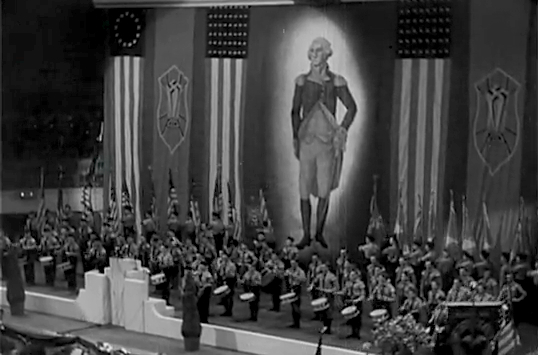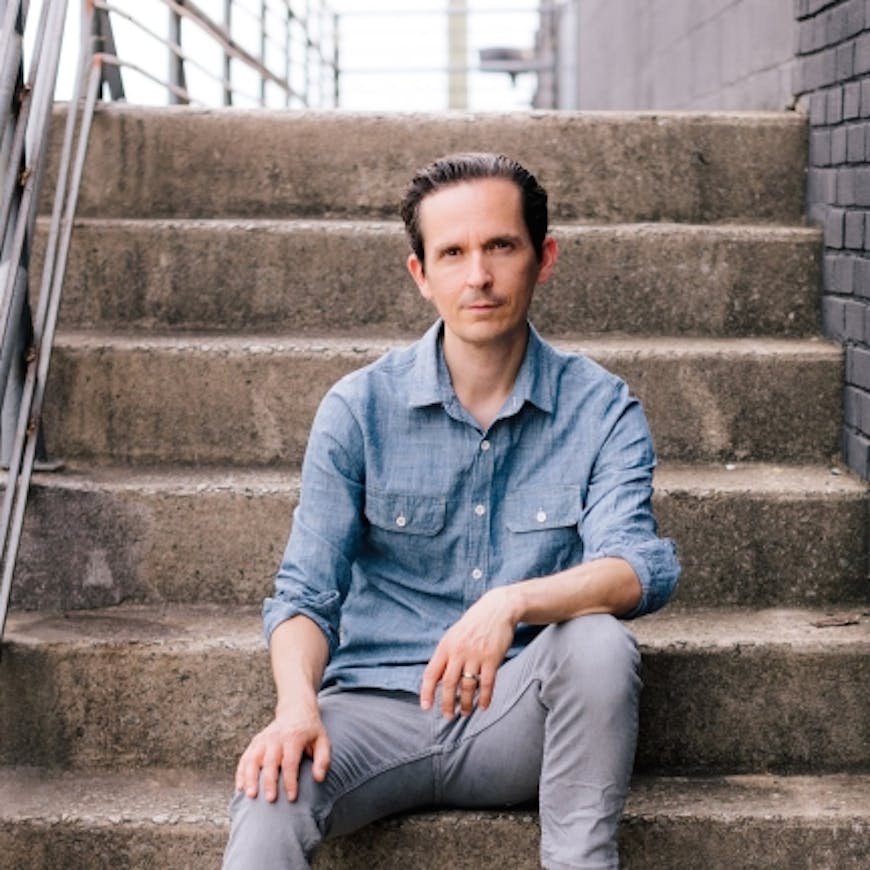by Thomas Mullen
When we think about the World War II years, we tend to visualize a time when all Americans were united, pulling together and sacrificing as one to defeat fascism. From Casablanca to Saving Private Ryan, this heroic myth is strong and enduring. But that’s nostalgia talking. The truth is far trickier.

Even at a time of war bonds and patriotic rallies and rationing, not every American opposed Hitler. Many people thought he had some pretty good ideas. An alarming amount of Americans embraced the anti-Semitic, Nazi worldview, and those long-buried roots are still bearing bitter fruit today.
My new novel, The Rumor Game, is set in Boston in 1943. One character, Anne Lemiere, is an antifascist activist and journalist whose weekly column disproves harmful war rumors, much of it German propaganda. The other protagonist, FBI agent Devon Mulvey, is tasked with ensuring that saboteurs don’t interfere with local war industries or ports. Researching this time period brought me many surprises, including how many Americans wanted to undermine the war effort.
For years as Europe burned, many Americans had been strong isolationists. Radio personalities like Father Charles Coughlin (the conservative media voice of his time), famous figures like Charles Lindbergh, several US Senators and Congressmen, and future president John F. Kennedy’s father (then the ambassador to London) opposed any effort to involve the country in Europe’s troubles. Many Americans openly supported Hitler, like members of the German American Bund, which held huge rallies in Madison Square Garden and elsewhere. German agents in the U.S. provided funding and talking points to many pro-Nazi groups, finding agreeable soil in which they planted their fascist seeds.
Then Pearl Harbor happened. Within days, we were officially at war with both Japan and Germany, and it became illegal to support the Nazis. Father Coughlin’s newspaper was banned from the mail (people could still distribute it by hand, though). German agents were either arrested or forced out of the country, but all those Americans who had agreed with them didn’t suddenly disappear. They just got a little quieter.
Less quiet than you’d think.
Some of the villains in my novel belong to a group called the Christian Legion. That’s a fictional organization, but it’s based on several pro-Nazi, anti-Semitic groups that still existed in the United States even after we entered World War II. One in particular, the Christian Front, had been founded in the 1930s by politically active clerics and laypeople who were outraged by the Russian Revolution and by leftist Republicans’ violence against the Catholic Church in the Spanish Civil War. In their eyes, Church-hating Communists and Socialists were the real enemy—and they conflated leftists in their minds with Jews. America’s Christian Front supported Spain’s future dictator Francisco Franco during that war, and it echoed Hitler’s opposition to Communists and his persecution of Jews during the lead-up to Pearl Harbor—and even after.
I was born and raised an hour from Boston, and I lived in the city for a few years after college; Boston has a big piece of my heart, so it brings me no joy to report that it was home to much anti-Semitic and pro-Nazi activity during World War II. Much of the city’s large Irish population was predisposed to viewing our English allies with suspicion or even hatred, and its Catholic population was susceptible to the Front’s focus on leftist (and Jewish) enemies of the Church. Both of these biases were exploited by Axis propaganda.
The Christian Front was particularly active in Boston, distributing anti-Semitic hate sheets and hosting several rallies that turned violent. During the war years, in neighborhoods like Dorchester, attacks on Jews became commonplace. Gangs of Irish teens and young men would attack anyone from Jewish kids to old men. In some neighborhoods, it was as if Europe’s war was being fought right here in the streets.
Most city newspapers ignored the story, hesitant to criticize their majority-Irish readers. City police also looked the other way—and sometimes even participated in the violence. It all contributed to a hostile atmosphere so very different from the unified, patriotic visions we have of that time.
And it sounds alarmingly similar to our own time, as right-wing trolls and militias around the world breathe new life into old hatreds. Today we’re faced with deep societal divisions, rampant disinformation that exploits old biases, rising anti-Semitism, and a lack of faith in democracy. Surveys suggest a terrifyingly high percentage of Americans agree that political violence is sometimes acceptable.
I hope The Rumor Game sweeps readers away to a different time and place. But I also hope it helps them contextualize how we got to where we are today, how we once overcame a similar evil, and what it takes to imagine a better future.

Thomas Mullen is the internationally bestselling author of eight novels, including Darktown, an NPR Best Book, which was shortlisted for the Los Angeles Times Book Prize, the Southern Book Prize, the Indies Choice Book Award, and was nominated for or won prizes in France, Sweden, and the United Kingdom. The follow-up, Lightning Men, was named one of the Top Ten Crime Novels of 2017 by The New York Times and was shortlisted for a CWA Dagger Award. His debut, The Last Town on Earth, was named Best Debut Novel of 2006 by USA Today and was awarded the James Fenimore Cooper Prize for excellence in historical fiction.
